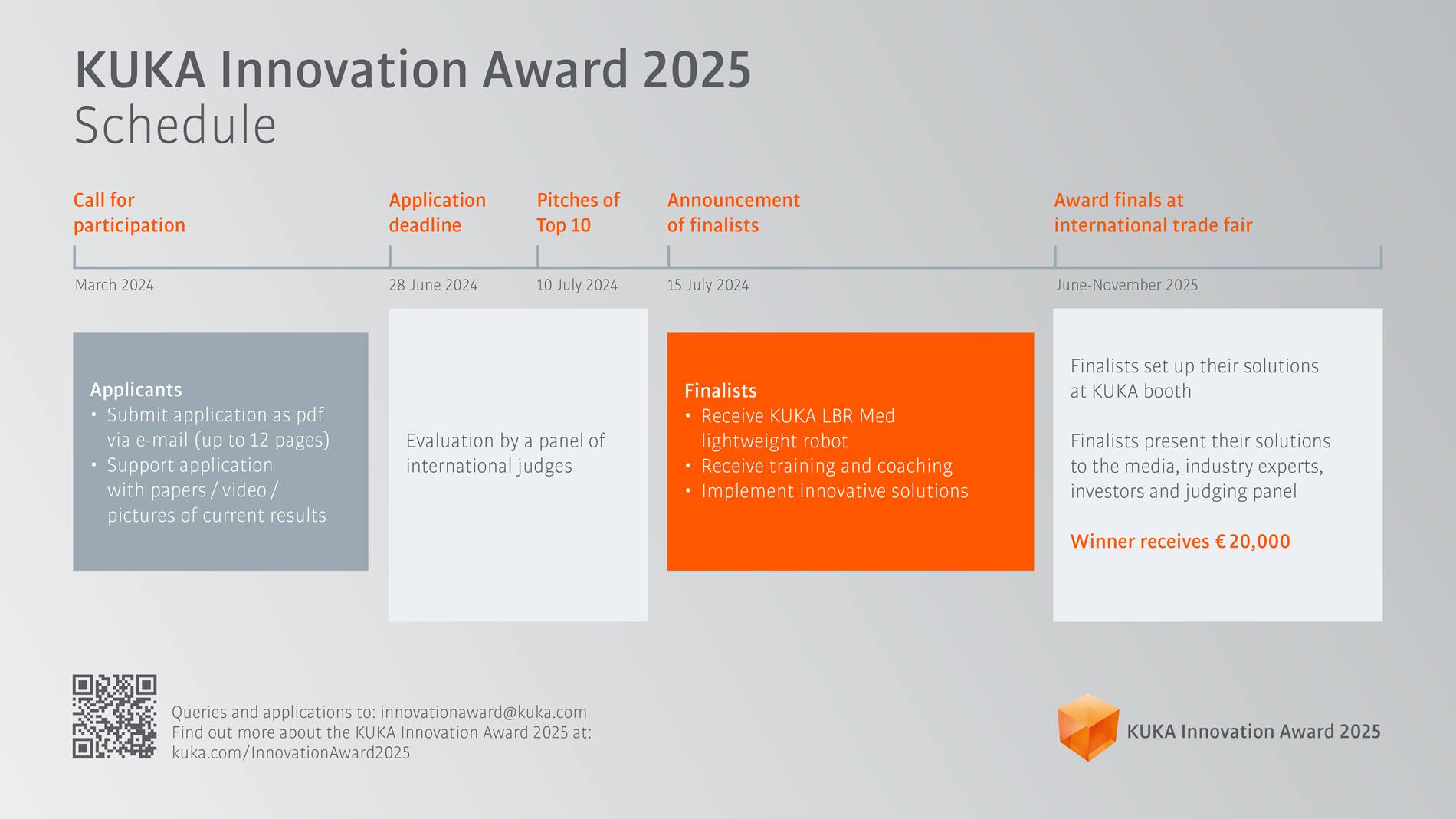Medical Robotics Challenge 2.0
The KUKA Innovation Award 2025 primarily targets the interaction of robotic systems with humans in the medical environment and robots being part of future medical applications. This includes applications with direct interaction with a patient for diagnosis, rehabilitation, surgery and other forms of therapy.
We would like to encourage participants to look to the future: Where and how can robots be used in the next medical applications and contribute to optimal patient care? Does AI play a role in this area? How can sensors and vision systems act in medical applications and improve outcomes? The proposed solutions are expected to enable new robotic use cases for the future of healthcare. The solutions should address a valid clinical or medical problem that can be solved with an innovative robotic system. Market requirements should also be taken into account and potential business opportunities highlighted. The system concept should be versatile, i.e. broadly applicable, and definitely not limited to an engineering approach for solving a specific use case. Participants from academia, research and industry are encouraged to present system concepts that can lead to, or are already on the edge to, commercialization.























